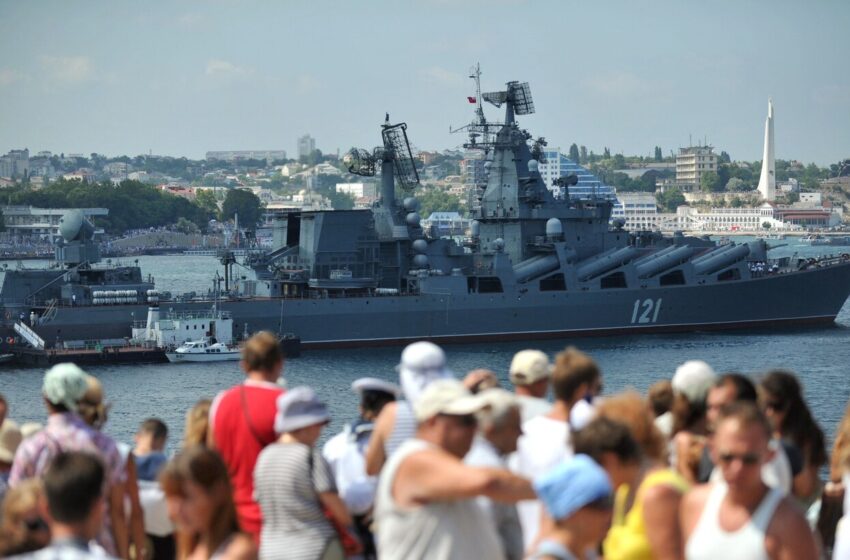The Los Angeles Chargers have a 300-pound monster playing fullback

Russia’s top warship in Black Sea damaged; Ukraine says missiles sunk it

Late Wednesday, Odessa state regional administrator Maxim Marchenko said a Ukrainian Neptune anti-ship cruise missile had struck the Moskva, causing serious damage. Hours later, the Russian Defense Ministry acknowledged that a key ship in its Black Sea fleet had suffered significant damage but didn’t address the Ukrainian claims.
Instead, the Russians said they would investigate what had caused the damage and blamed the setback on a fire that had detonated the ship’s ammunition. All of the ship’s approximate 500 crew members were evacuated, it said.
Adding to the confusion, an adviser to Ukrainian President Volodymyr Zelensky told CNN that senior Ukrainian officials weren’t sure about what was true. “Either two sailors were smoking in the wrong place, or once again certain safety measures were violated,” said Oleksiy Arestovych. He later tweeted that the ship “drowned.”
Early Thursday, the Center for Analysis of Strategies and Technologies, a Moscow-based think tank, said on its Telegram channel that it believed the ship had been sunk and sided with the Ukrainian assessment. “The flagship of the Russian Black Sea Fleet, the Moskva cruiser, was indeed attacked by the Neptune anti-ship missiles from the coastline between Odessa and Nikolaev,” it said. A drone distracted the ship before the missiles hit, it said.
If the 12,000-ton Moskva went under, it would be the largest wartime sinking of a naval vessel since World War II.
The Washington Post couldn’t independently verify the accuracy of the claims.
The Moskva doesn’t have major strategic value, but as the Black Sea flagship, it possesses symbolic significance, said Artyom Lukin, an international relations professor at the Far Eastern Federal University in Vladivostok.
The ship is named after Russia’s capital city and was at the center of a widely reported attack on Snake Island, when Ukrainian border guards drew global attention for insulting Russian troops during the early days of the invasion.
“The loss of not just a principal surface combatant in the Russian navy, but also the fleet flagship, would amount to more of a psychological blow to the Russians,” said Collin Koh, an expert on maritime security at Singapore’s Nanyang Technological University.
The notion that Ukrainian missiles hit the Moskva reinforces “the image of hardened resistance by the Ukrainians” and sows “more doubt in the minds of Russian servicemen,” particularly the sailors serving on Russian warships off Ukraine’s southern coast, he added.
